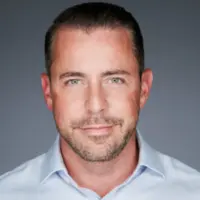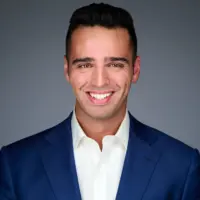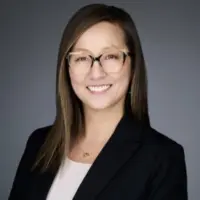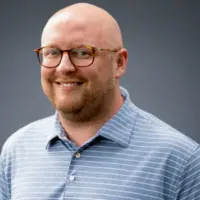I am grateful with this place, it has made drastic changes in my life, and it has helped me overcome thousands of things that I thought I would never be able to overcome!
About BrightView — Georgetown, KY Addiction Treatment Center
BrightView makes opioid recovery accessible, effective and immediate for adults in Georgetown and the greater Scott County of Kentucky. Georgetown is a historic city in the heart of Kentucky’s Bluegrass region, renowned for its scenic trails and well-preserved 19th-century architecture.
BrightView is located on Lexington Road in the heart of Georgetown, about a mile southwest of McCracken Creek Trail and two miles northwest of Holy Trinity Episcopal Church and Yuko-En on the Elkhorn.
The facility takes a unified recovery approach involving medication-assisted treatment (MAT), outpatient therapy and case management. The clinic enjoys the trust of many community members who have found transformation and resilience through the team’s dedicated, unwavering and holistic support. This is reflected in their strong 4.6-star rating and numerous testimonials from past clients who express deep satisfaction with the care they received. One client shared, “Thank you ALL at Brightview for helping me live a normal life! I’ve truly been blessed with the best staff and doctors.”
Comprehensive, Affordable Care
In addition to offering a nurturing outpatient setting supported by a dedicated and friendly team, BrightView works to keep care affordable so that cost isn’t a barrier for those genuinely seeking healing. They accept Medicaid, Medicare and several private insurance plans. Their team will even assist you in setting up insurance if you’re uninsured. Flexible payment plans are also available for clients with limited financial resources. It’s comforting to know they go the extra mile to make sure you get the support you need.
Medication-Supported Recovery For Opioid Addiction
MAT at BrightView begins with a detailed intake assessment, followed by a personalized prescription of methadone, Suboxone or Vivitrol. These FDA-approved medications reduce cravings and ease withdrawal symptoms, helping to stabilize brain chemistry and support long-term recovery.
Ongoing support includes regular medication management and therapy to help you address underlying emotional challenges and build skills to maintain lasting sobriety. Their social support team will assess any psychosocial needs that might hinder your recovery, such as housing, employment or medical care and connect you with community resources to address them. They’re all about equipping you with everything you need to move forward with confidence and a renewed sense of purpose.
Rehab Score
Accepted Insurance
Other Forms of Payment
Self-pay involves paying for treatment out of your own pocket. You can use savings or credit, get a personal loan, or receive help from family and friends to fund your treatment. If you don't have insurance or your insurance plan doesn't cover a specific program, self-pay can help ensure you still get the care you need.
Private insurance refers to any kind of healthcare coverage that isn't from the state or federal government. This includes individual and family plans offered by an employer or purchased from the Insurance Marketplace. Every plan will have different requirements and out of pocket costs so be sure to get the full details before you start treatment.
Medicaid is a state based program that helps lower-income individuals and families pay for healthcare. Medicaid covers addiction treatment so those enrolled can use their coverage to pay for rehab. When a program accepts Medicaid the client often pays very little or nothing out of their own pocket.
Addiction Treatments
Levels of Care
Drug and alcohol addiction often takes a heavy toll on one's body. Over time, a physical dependence can develop, meaning the body physiologically needs the substance to function. Detox is the process of removing drugs and/or alcohol from the body, a process that can be lethal if mismanaged. Medical detox is done by licensed medical professionals who monitor vital signs and keep you safe, healthy, and as comfortable as possible as you go through detox and withdrawal.
Renew Recovery Intensive Outpatient Program (IOP) patients of Kentucky are provided with a professional, comfortable and safe treatment facility in which real recovery begins for the body, mind and spirit. Their accredited Intensive Outpatient Program (IOP) is as effective as inpatient treatment, yet allows for patients to continue living at home, working or going to school while gaining the focused therapies needed to ensure lifelong recovery.
In Kentucky, overcoming addiction can be as challenging as anywhere else. Renew Recovery’s Accredited Outpatient Program provides the opportunity to attain recovery for the first time, revisit principles of recovery to prevent returning to use, or regain sobriety after relapse. Outpatient Program scheduling fits your life so you can continue managing home, work and school responsibilities while undergoing the treatment you need.
Treatments
The goal of treatment for alcoholism is abstinence. Those with poor social support, poor motivation, or psychiatric disorders tend to relapse within a few years of treatment. For these people, success is measured by longer periods of abstinence, reduced use of alcohol, better health, and improved social functioning. Recovery and Maintenance are usually based on 12 step programs and AA meetings.
Drug rehab in Kentucky often starts with detox, then includes inpatient or outpatient treatment, and continues with aftercare support. Specific methods used during each of these phases varies, but often include individual and group counseling, medication, and recreational therapies.
Opioid rehabs specialize in supporting those recovering from opioid addiction. They treat those suffering from addiction to illegal opioids like heroin, as well as prescription drugs like oxycodone. These centers typically combine both physical as well as mental and emotional support to help stop addiction. Physical support often includes medical detox and subsequent medical support (including medication), and mental support includes in-depth therapy to address the underlying causes of addiction.
Substance rehabs focus on helping individuals recover from substance abuse, including alcohol and drug addiction (both illegal and prescription drugs). They often include the opportunity to engage in both individual as well as group therapy.
Programs
Adult rehab programs include therapies tailored to each client's specific needs, goals, and recovery progress. They are tailored to the specific challenges adult clients may face, including family and work pressures and commitments. From inpatient and residential treatment to various levels of outpatient services, there are many options available. Some facilities also help adults work through co-occurring conditions, like anxiety, that can accompany addiction.
Young adulthood can be an exciting, yet difficult, time of transition. Individuals in their late teens to mid-20s face unique stressors related to school, jobs, families, and social circles, which can lead to a rise in substance use. Rehab centers with dedicated young adult programs will include activities and amenities that cater to this age group, with an emphasis on specialized counseling, peer socialization, and ongoing aftercare.
Clinical Services
Research clearly demonstrates that recovery is far more successful and sustainable when loved ones like family members participate in rehab and substance abuse treatment. Genetic factors may be at play when it comes to drug and alcohol addiction, as well as mental health issues. Family dynamics often play a critical role in addiction triggers, and if properly educated, family members can be a strong source of support when it comes to rehabilitation. Families, significant others and friends are encouraged to attend individual counseling with patients as desired, to help rebuild and strengthen those important bonds.
Group therapy is any therapeutic work that happens in a group (not one-on-one). There are a number of different group therapy modalities, including support groups, experiential therapy, psycho-education, and more. Group therapy involves treatment as well as processing interaction between group members. Group therapies add peer support and improved self-awareness while rebuilding social skills and breaking the addiction behavior of isolation. In group counseling, you connect with others in treatment and make new friends who don’t use drugs. You can also get these benefits from Renew Recovery support groups. These are informal meetings of people facing similar challengers.
Medication is one part of treatment for drug addiction. Another important part of the Renew Recovery approach is drug addiction counseling – the opportunity to talk with a professional either one-on-one or in a group with others in treatment. Through counseling, you learn about the motivations and behaviors that led to your drug addiction. You learn how to commit to a more healthful lifestyle. You gain support and skills while working with others to manage your recovery long term.
Amenities
-
Private Setting
Staff & Accreditations
Staff

Shawn Ryan, , MD, MBA, ABEM, ABAM
Chief Science Officer

Jordan Angel
Vice President of Transformation

Jane Cobler
Chief People Officer

Chad Smith
CEO
Accreditations

The Joint Commission, formerly known as JCAHO, is a nonprofit organization that accredits rehab organizations and programs. Founded in 1951, the Joint Commision's mission is to improve the quality of patient care and demonstrating the quality of patient care.
Joint Commission Accreditation: Yes
Contact Information
1154 Lexington Rd.
Georgetown, KY 40324






